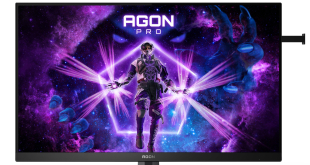Earlier this year, Sony began sharing the first details for its next-gen console. Now, we have a better idea of what the competition is bringing to the table, as Microsoft began discussing Project Scarlett last night during E3. The next-gen Xbox will be arriving in late 2020, powered by AMD's Zen 2 CPU architecture and the Radeon RDNA architecture.
As previously rumoured, the codename for the next Xbox is Scarlett. Similarly to the PS5, it will make the jump to a Zen 2 CPU and new Radeon RDNA (previously ‘Navi') graphics with GDDR6 VRAM. Microsoft is also promising NVMe SSD storage, hardware accelerated ray-tracing and support for resolutions and frame rates we've “never seen before” on a console. That includes support for up to 120 frames per second and resolutions as high as 8K.
Interestingly, the SSD inside of Scarlett will also be capable of operating as virtual RAM, which will improve performance further. In all, this is supposed to be four times more powerful than an Xbox One X, which is a pretty major jump considering that the Xbox One X is still relatively new.
Everything we know so far is in broad strokes. Scarlett will be launching in Holiday 2020 with Halo Infinite as a launch title. With that in mind, we should hear a lot more at next year's E3, including a look at the actual box itself.
KitGuru Says: As expected, the PS5 and next-gen Xbox are going to be running similar hardware. 2020 won't just be a big year for hardware though, as Microsoft will also be pushing Project xCloud as another way to access games. So far, it is shaping up to be an interesting year.
 KitGuru KitGuru.net – Tech News | Hardware News | Hardware Reviews | IOS | Mobile | Gaming | Graphics Cards
KitGuru KitGuru.net – Tech News | Hardware News | Hardware Reviews | IOS | Mobile | Gaming | Graphics Cards


